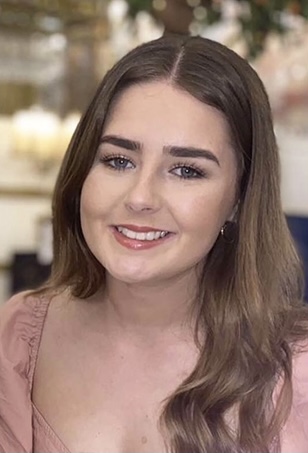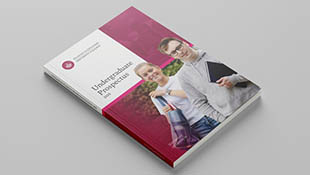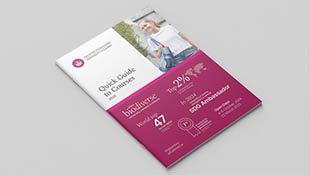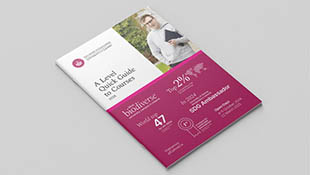-
Courses

Courses
Choosing a course is one of the most important decisions you'll ever make! View our courses and see what our students and lecturers have to say about the courses you are interested in at the links below.
-
University Life

University Life
Each year more than 4,000 choose University of Galway as their University of choice. Find out what life at University of Galway is all about here.
-
About University of Galway

About University of Galway
Since 1845, University of Galway has been sharing the highest quality teaching and research with Ireland and the world. Find out what makes our University so special – from our distinguished history to the latest news and campus developments.
-
Colleges & Schools

Colleges & Schools
University of Galway has earned international recognition as a research-led university with a commitment to top quality teaching across a range of key areas of expertise.
-
Research & Innovation

Research & Innovation
University of Galway’s vibrant research community take on some of the most pressing challenges of our times.
-
Business & Industry

Guiding Breakthrough Research at University of Galway
We explore and facilitate commercial opportunities for the research community at University of Galway, as well as facilitating industry partnership.
-
Alumni & Friends

Alumni & Friends
There are 128,000 University of Galway alumni worldwide. Stay connected to your alumni community! Join our social networks and update your details online.
-
Community Engagement

Community Engagement
At University of Galway, we believe that the best learning takes place when you apply what you learn in a real world context. That's why many of our courses include work placements or community projects.
Occupational Therapy
Course Overview
Occupational Therapy is an interesting and rewarding career. Occupational Therapists aim to enable people to participate in the activities of everyday life. As an Occupational Therapist you will work in partnership with individuals, families and communities to enable them to participate more fully in their daily ‘occupations’. ‘Occupation’ is the term used to describe all the ways in which we occupy our time – the tasks and activities essential for daily life – washing, dressing, feeding and moving around, as well as the more complex areas of working, leisure, socialising and managing finances and home. Illness, trauma or social disadvantage can result in difficulties in these areas. Occupational Therapists design and deliver intervention programmes to address these difficulties. They also work with individuals and groups to adapt daily life activities to promote better health, prevent ill-health and maintain health and flourishing as much as possible.
As an Occupational Therapist, you could work in a large variety of settings and with many different individuals and groups. Occupational Therapists work in hospitals, primary care, community care, rehabilitation services, disability network teams, schools, industry, academia, healthcare management and administration, community/voluntary organisations and in private practice. They work across the lifespan from neo-natal services to older age and across all types of health and social concerns – from specialist neuro-rehabilitation to primary care, to mental health and to homelessness services. The BSc (Occupational Therapy) programme at the University of Galway will prepare you for wherever you wish your career in Occupational Therapy to take you.
In the programme, you will study modules relating to the structures and functioning of the human body and mind (such as Anatomy, Physiology and Psychology). You will have specialist Occupational Therapy modules in many different areas of practice (such as Physical Disability, Paediatrics, Older Adults, Neurology and Mental Health). You will learn how to provide a high-quality, evidence-based healthcare service through modules in Management, Evidence-Based Practice, Research and Fundamentals of Occupational Therapy.
Our WFOT accredited and CORU regulated programme includes over 1000 hours of Practice Education, where you will spend time in healthcare settings under the supervision of an Occupational Therapist. Your four placements will be in different healthcare areas across the country and you will get experience in all the key areas of practice.
Applications and Selections
Who Teaches this Course
The programme is delivered by academic staff who are CORU-registered Occupational Therapists. Students will also take lectures in Anatomy, Psychology, Physiology in their 1st and 2nd Year and will get the opportunity to learn from Lecturers across the College of Medicine, Nursing and Health Sciences. Some of our modules include learning from people with lived experience of health conditions and using healthcare services.
Lecturers include:
Professor Agnes ShielRequirements and Assessment
Key Facts
Entry Requirements
Minimum Grade H5 in two subjects and passes in four other subjects at O6/H7 Level in the Leaving Certificate, including Irish, English, another language, Mathematics, a laboratory science subject (i.e. Chemistry, Physics, Biology, Physics with Chemistry (joint) or Agricultural Science) and any other subject recognised for entry purposes.
Additional Requirements
Recognition of Prior Learning (RPL)
Duration
4 years
Next start date
September 2025
A Level Grades (2024)
universityofgalway.ie/alevels
Average intake
25
QQI/FET FETAC Entry Routes
Closing Date
NFQ level
Mode of study
ECTS weighting
Award
CAO
GY502
Course code
Course Outline
This course explores how difficulties in relation to physical or mental health can affect occupation (i.e. daily activities) in all groups of people – children, adolescents, adults and older adults. The course also explores how the social and physical environment can hinder or support people to live full lives and how daily activities can be health-promoting. Throughout the four years of the programme, students will have the opportunity to take part in interdisciplinary learning with other healthcare students and learn from community partners and those with lived experience of health challenges.
Year 1
In the first year of the programme, students will gain a basic understanding of the human body and psychology and will be introduced to the theoretical background of Occupational Therapy. Students will have an opportunity to practice some key occupational therapy skills in the areas of mental health and physical disability in a classroom setting.
Year 2
In the second year of the programme, students will develop their understanding of the human body and mind further, with additional modules in neuroanatomy and neurophysiology. They will be introduced to occupational therapy practice in the areas of paediatrics and intellectual disability. They also learn about structures and systems affecting how people can participate in daily life through modules in occupational science and social policy. Students will have their first long placement in Semester 2 of 2nd year.
Year 3
In the 3rd year of the programme, students will engage in different methods of learning, moving towards more group-based and self-directed project work. Students work on community-led projects and learn about specialist areas of practice such as cognitive neuropsychology and neuropsychological rehabilitation. They also learn about research methods, evidence-based practice and how to work with older adults and their families. Students will again have a placement in Semester 2.
Year 4
The final year of the programme moves students towards being occupational therapy practitioners. There are two placements in Semester 1, giving students excellent experience as they prepare for their career. Students work alongside a supervisor to plan, implement and report an individual research project and they learn important skills in management and professional development.
In the first Year of the programme, students will gain a basic understanding of the human body, psychology and be introduced to the concepts of enabling occupation. These concepts will be developed further in the second year of the programme, with an additional focus on neuroanatomy and neurophysiology.
In years three and four of the programme, students will develop their research skills and evidence based practice. They will learn to analyse, report and present on case studies. In addition to this, year four of the programme prepares future graduates for active engagement in occupational therapy practice. Students will review current health care strategies and policies and learn about continuing their professional development once they graduate from the programme.
Further Education
Students may continue further study in the following programmes at the Discipline of Occupational Therapy in the University of Galway:
- Structured PhD Occupational Therapy - Full-time or part-time
- MPhil Health Sciences – Occupational Therapy - Full time or part-time
Students will be eligible to register with the Health and Social Care Professionals Regulator (CORU) as soon as they graduate.
Why Choose This Course?
Career Opportunities
Career Opportunities
Occupational Therapy graduates are in high demand in Ireland, especially as new clinical programmes are being developed. Our graduates will be in a position to work as CORU-registered Occupational Therapists in a variety of settings and with a variety of patients/clients including:
- Hospitals
- Community Rehabilitation Services
- Mental Health Services
- Child and Adolescent Services
- Voluntary Organisations
- Community Disability Network Teams
- Private Practice
- Primary Care teams
- Industry
International opportunities
Occupational therapy graduates are in high demand worldwide. The BSc (Occupational Therapy) programme in the University of Galway is accredited by the World Federation of Occupational Therapy. This means that graduates can practice in settings across the world, although each country will have its own entry requirements – sometimes including an exam.
Work placement
All students are required to complete 1000 hours of Practice Education successfully under the supervision of a qualified occupational therapist. Practice education is a process of work-based learning which involves a partnership between the practice educator and the student in the practice setting. Practice education takes place in 1st year (1 week), Semester 2 of 2nd year (8 weeks), Semester 2 of 3rd year (8 weeks) and Semester 1 of 4th year (2 x 8 weeks). Students may be required to undertake practice education anywhere in Ireland in order to give them a variety of experiences.
Who’s Suited to This Course
Learning Outcomes
Transferable Skills Employers Value
Work Placement
All students are required to complete 1,000 hours of Practice Education successfully under the supervision of a qualified occupational therapist. Practice Education is a process of work based learning which involves a partnership between the practice educator and the student in the practice setting. Practice Education takes place at the end of Semester 2 in first year (one week), Semester 2 of second year (8 weeks), Semester 2 of third year (8 weeks) and Semester 1 of fourth year (2 x 8 weeks). Students may be required to undertake practice education anywhere in Ireland and can
Study Abroad
Related Student Organisations
Course Fees
Fees: EU
Fees: Tuition
Fees: Student Contribution
Fees: Student levy
Fees: Non EU
Occupational Health Service
In year one students are required to pay a €200 fee towards a subsidised Occupational Health Service provided to students of the College of Medicine, Nursing & Health Sciences in compliance with all relevant legislation and standards.
EU Fees are comprised of Tuition + Student Contribution Charge + Student Levy* €140. *Payable by all students and is not covered by SUSI. Further detail here.
For 25/26 entrants, where the course duration is greater than 1 year, there is an inflationary increase approved of 3.4% per annum for continuing years fees**.
**Excludes Full-Time EU Undergraduate fees. These are fixed and do not change.
Find out More
Jane Bowman
The School of Health Sciences ,
College of Medicine,
Nursing and Health Sciences
T: 353 (0)91 492 957
E: healththerapies@universityofgalway.ie
www.universityofgalway.ie/occupational_therapy
Other useful links:
The Association of Occupational Therapists of Ireland
The World Federation of Occupational Therapy
What Our Students Say

Anna Lynam | BSc (Occupational Therapy)
There is an excellent balance between academic learning and practical work. Placements were organised by the college and provided me with opportunities to apply the skills and theory I had learned in a practical setting. These placements were not only enjoyable but also supported me in becoming more confident in both myself and my role as an occupational therapist. This course also offers brilliant modules on different aspects of Mental Health, which is an area I now feel particularly passionate about pursuing. As the class is relatively small, I got to know the lecturers very well and developed lifelong friendships with my classmates. Lecturers always offer constructive feedback, which supports you in developing any areas for improvement. I am so excited to start my journey as an occupational therapist and believe I have the skill set, confidence and knowledge base to do so.
























